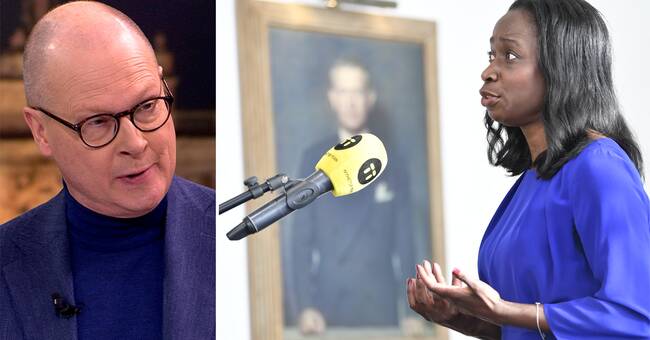In both the Liberals' party board and parliamentary group, there is a majority to be part of a bourgeois government after the next election, even if such a party would need the support of the Sweden Democrats.
But there is also a significant minority who oppose this.
And the time leading up to the decisive party council on March 28 is therefore likely to be turbulent.
Internal criticism is already harsh from heavy party districts and high-profile party representatives.
At the same time, the Liberals are being attacked for their path choice by, among others, the Center Party's leader Annie Lööf.
This means it for the Liberals
What still suggests that Nyamko Sabuni will get the party council's support for his line is that the Liberals are hard pressed by lousy opinion figures and that most within the party agree that it is due to the cooperation with the Social Democrats.
Seeking to return to cooperation with other bourgeois parties can therefore above all be seen as a pure rescue operation.
Should Nyamko Sabuni's plan fail, it is difficult to see that she can stay.
But even if she succeeds, the political price can be high.
The party is obviously still deeply divided on this issue.
At the same time, it is not obvious that today's message means the salvation that the party leadership hopes for.
Of course, this is an important signal to voters, but attracting those who have fled can be difficult.
Confidence in the party among these voters has probably taken a real hit and it is not a given that they can be convinced by today's proposal.
At the same time, it may be that many of the voters who actually remain with the Liberals support the January cooperation and thus risk being rejected with today's message.
Pressure on Lööf about the Left Party
If the Liberals stick to today's message, the probability of a moderate-led government increases after the next election.
Regardless of whether the Liberals leave the Riksdag, or succeed in staying, Ulf Kristersson's chances of becoming prime minister increase after the election.
This also increases the pressure on the Center Party.
If Annie Lööf and her party comrades stick to the current line, the only alternative for the Center Party may be a government collaboration that also includes the Left Party.
The question is whether the center voters are prepared to swallow it.
For Stefan Löfven, the options for action diminish, but what he risks losing in the long run is offset at least in part by what he can gain in the short term.
With today's announcement, it does not look like the Liberals are prepared to trigger a government crisis already this spring, which has previously been threatened.
Increased chance for Ulf Kristersson
The message now is that the January co-operation will be wound up in an orderly manner after the autumn budget decision and that the Liberals will then go to the polls on their own.
It is not only an expected, but also logical, message.
All January parties are likely to want to do the same to try to distance themselves from the difficult compromises they have been forced to make within the framework of the cooperation.
For the Sweden Democrats, today's message means both advantages and disadvantages.
If Ulf Kristersson's opportunities to become prime minister also increase, the Sweden Democrats' opportunities to gain increased political influence.
On the other hand, a bourgeois government, which also includes the Liberals, means that it may be more difficult for the Sweden Democrats to push through several of their heart issues.

